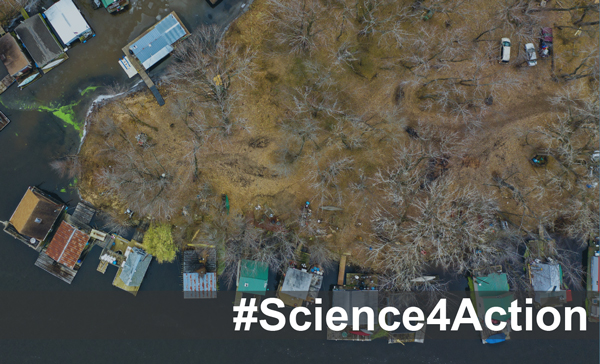Scientists Urge Formation of National Network to Accelerate Climate Change Action

A non-federal network that will leverage science to manage climate change risks in the United States is urgently needed, recommends a report released today by a group of 36 climate researchers, state/local/tribal officials, and other experts including Jerry Melillo, Distinguished Scientist at the Marine Biological Laboratory (MBL) and former chairman of the U.S. National Climate Assessments.
An early online version of the report, "Evaluating Knowledge to Support Climate Action,” is published today by the Bulletin of the American Meteorological Society. The report summary and a full press release are available here.
The report’s key recommendations are to establish a non-federal network to assess how to apply science in making and implementing decisions; focus these assessments on the common problems and challenges that climate risk managers face; and use new methods such as artificial intelligence to support climate risk management.
“This network will build off the U.S. National Climate Assessments to help communities establish pragmatic, science-based actions and pathways to manage the climate risks that are specific to their region,” said Melillo.
To provide interim leadership for this national network, the group also announced today the establishment of the Science for Climate Action Network (SCAN), which will coordinate preparation of a next-generation of climate assessments and serve as a backbone organization for groups that already are beginning to incorporate climate science in their work.
In 2016, a Federal Advisory Committee was convened to recommend how to increase the application of the National Climate Assessments to inform action. This committee was disbanded by the Trump Administration in 2017, but members and additional experts reconvened as the Independent Advisory Committee to complete the present report.
